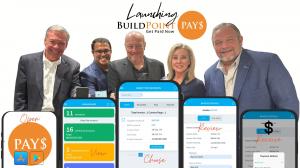Skyscend Partners with BuildPointUSA to Launch BuildPointPay Mobile App, Empowering Suppliers with Early Payment Solutions Innovative mobile app streamlines payments, enhances cash flow, and...
The Rental Shift: How Economic Realities Are Changing Housing Choices




“Housing has become unaffordable, so people are now viewing renting as a positive alternative where you can save money and invest it elsewhere,” observes Rob Golfi, Team Leader at RE/MAX Golfi Team, highlighting a significant change in how North Americans approach housing.
For decades, the traditional path to financial security has been clear: buy a home, build equity, and eventually own your property outright. However, a growing number of individuals are challenging this conventional wisdom, embracing renting as a deliberate financial strategy rather than a temporary arrangement before homeownership.
The Affordability Crisis Reshaping Housing Decisions
The current housing market presents a stark reality for many potential buyers. After a period of rapid growth, markets have stabilized but at price points that remain out of reach for many.
“We’re flat lining right now. We flatlined since middle to the end of 2022, so we’re about two and a half years into this plateau,” Golfi explains. While this plateau offers some relief from the rapid escalation seen previously, it comes after prices have already reached historically high levels.
This plateau contrasts dramatically with previous market cycles. Golfi points out, “In the 90s, in our market, 1990 the average sale price was approximately $163,000. Then nine years later, 1999 the average sale price was around $167,000, increasing only about $3,000 in nine years.” Today’s market, even in its stabilized state, presents a significantly different affordability picture.
The New Financial Calculus: Renting vs. Buying
When factoring in the total cost of homeownership—mortgage payments, property taxes, insurance, maintenance, and opportunity costs of down payments—many find that renting can free up capital for other investments. This approach allows for portfolio diversification rather than concentrating wealth in a single asset.
In many urban centers across North America, the rent-to-price ratio (annual rent divided by home price) has fallen to levels where renting appears financially advantageous in the short to medium term, especially when investment alternatives are considered.
Flexibility as a Valuable Asset
Beyond pure financial calculations, today’s workforce increasingly values flexibility. Remote work policies, contract positions, and career changes have become commonplace, making the ability to relocate without the burden of selling a home increasingly valuable.
This mobility advantage is particularly significant for younger professionals who may change jobs or locations multiple times in their early careers. For this demographic, avoiding the transaction costs associated with buying and selling homes within short timeframes represents substantial savings.
The Investment Alternative
The financial strategy emerging among long-term renters often involves directing the capital that would otherwise go toward a down payment and higher monthly housing costs into diversified investment portfolios.
“If you’re buying just a basic home and taking care of the property, that’s a good investment because it’s going to appreciate and help you build wealth,” Golfi acknowledges, supporting the traditional view of homeownership as wealth-building.
However, market analysts point out that historical real estate appreciation rates, when adjusted for inflation, taxes, and maintenance costs, often underperform compared to diversified investment portfolios over similar time periods. This insight has led many to question whether homeownership should automatically be considered the superior wealth-building strategy.
Market Uncertainty Factors
Current economic conditions have introduced additional variables into the housing equation. “With everything that’s happening with Canada, United States and Mexico, with the tariffs, there’s a degree of uncertainty right now,” notes Golfi.
This uncertainty extends to interest rates, which have been volatile in recent years. “The rates have been dropping. People are coming into the market, but not as fast as we expected,” Golfi observes. This hesitancy reflects broader caution among potential buyers who worry about committing to large mortgages in an uncertain economic climate.
The Cultural Shift
Perhaps most significantly, there’s an evolving cultural narrative around renting. What was once viewed primarily as a temporary situation before homeownership is increasingly positioned as a legitimate long-term lifestyle and financial choice.
Financial advisors and housing experts are acknowledging that for many individuals—particularly those in high-cost urban areas—renting while investing elsewhere may represent a more optimal financial strategy than stretching to purchase a home.
Ultimately, A New Housing Paradigm
The growing trend of deliberate, long-term renting represents more than just a response to affordability challenges—it reflects a fundamental reassessment of housing within personal financial planning.
While homeownership remains an aspiration and sound investment for many, a significant portion of the population is discovering that renting provides both financial advantages and lifestyle benefits that better align with their priorities and circumstances.
As this shift continues, we may see further development in housing products, financial services, and investment vehicles designed to serve this growing demographic of intentional renters who are creating their own path to financial security beyond the traditional homeownership model.
Similar Articles
Explore similar articles from Our Team of Experts.


Delivered by expert home inspector instructors from around the country, AHIT has trained over 76,000 home inspectors. The CE Shop’s industry-leading education equips those looking to start...


Atlanta Homeowners Protect their Homes from Dangerous Radon Gas with Radon Testing & Mitigation Inc.
ATLANTA, GEORGIA, UNITED STATES, July 1, 2024 /EINPresswire.com/ — Radon Testing & Mitigation Inc., a leading provider of radon testing and mitigation services, is helping Atlanta ...


Building, an Internationally Compliant Platform for the Tokenization of Real Estate and Other Financial Assets, is Creating Data-Driven Assets for Smarter Portfolios MILWAUKEE, June 5, 2024 ...


Stoddard will succeed Julie C. Albrecht CHARLOTTE, N.C., June 17, 2024 /PRNewswire/ — JELD-WEN Holding, Inc. (NYSE: JELD) today announced that current JELD-WEN North America CFO and he...



